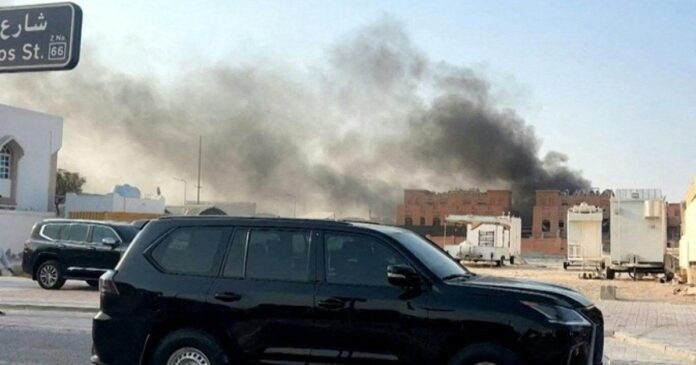Attack on Hamas leaders in Qatari capital Doha shows Israel will keep escalating if global powers don’t stop it.
Israel had no intention of covering up its involvement in Tuesday’s attack on Doha – within minutes of the explosions being heard in the Qatari capital, Israeli officials were claiming responsibility in the media.
And not long after, the office of Israeli Prime Minister Benjamin Netanyahu publicly took responsibility for the attack on several Hamas leaders.
“Israel initiated it, Israel conducted it, and Israel takes full responsibility,” the statement said.
The attack marks yet another escalation by Israel – the latest in a series that has included launching a war against Iran, occupying more land in Syria, killing the leadership of the Lebanese group Hezbollah, and the killing of more than 64,500 Palestinians in the Gaza Strip since its war there began.
But this attack marks a new frontier in what Israel believes it can get away with: a direct attack on a United States ally – Qatar hosts the largest US military base in the region – that has been leading negotiations to secure a ceasefire deal and release Israeli captives from Gaza.
“We’ve seen that Israel fires in crowded and residential areas and in capitals across the Middle East as it pleases,” Mairav Zonszein, the International Crisis Group’s Senior Israel Analyst, told media. “And it continues to do so, and will continue to do so, [if no one] takes serious action to stop it.”
The attack took many by surprise because it went beyond what Palestinian defence analyst Hamze Attar called, “traditional Mossad [Israeli intelligence] work”, such as assassinations through car bombs, poison, or gun or sniper attacks.
“I don’t think … the Qataris expected that Israel would bomb Doha,” he said.
“I don’t think, analytically speaking, that Israel would carry out any such attack without an American green light,” said media’s senior political analyst Marwan Bishara. “If America indeed did not give a green light, we should be hearing a condemnation coming any minute … The Trump administration needs to condemn this behaviour by its client, Israel, while [ceasefire] negotiations are going on.”
Those ceasefire negotiations are discussing a deal that Trump has pushed for himself, but with the caveat that the US president has taken to issuing his own threats towards Hamas and Gaza should a deal not be reached.
That has implied that the Palestinian group has been the main barrier to a deal – but, in reality, Hamas has agreed to past ceasefire proposals, only to find Israel rejects deals it has previously agreed to, or changes the parameters of the negotiations.
End of ceasefire negotiations?
The Trump administration previously pushed for a deal that would include the partial release of Israeli captives and a temporary pause in the fighting during which negotiations for a permanent end to the war would continue.
Coupled with Israel’s ongoing military operation in Gaza City, where it has demanded all Palestinians leave, and its insistence that Hamas be destroyed, it looks likely that Israel plans to continue its war, whatever the outcome of the negotiations.
“I think the bottom line here is that Israel clearly is not interested in any kind of ceasefire, or negotiations for a ceasefire, [and] that the reports about Trump’s proposal of negotiating with Hamas, whatever this revised new offer was, was all a ruse and theatre,” said Zonszein.
“And of course, there’s no expectation that taking out [Hamas’s] political leadership in Doha is going to be some kind of strategic game changer in Israel’s war on Gaza,” she added.
Other analysts agreed with that perspective.
“Israel has taken its contempt for negotiations, and for international law and respect for [the] sovereignty of states to a new level of transparency,” said Daniel Levy, president of the US/Middle East Project and a former Israeli negotiator in the 1990s and early 2000s. “We should have long since been past the point where there was any doubt from any fair-minded person as to whether Israel is negotiating in good faith.”
Qatar has long had a role as a regional and international mediator, keeping good relations with both the United States and Iran, for example.
While it does not have relations with Israel, Qatar has hosted Israeli negotiators for ceasefire talks since the start of the war in October 2023, and has previously coordinated with Israel over providing aid to Gaza before the war.
“Qatar is one of the countries that is trying the hardest to calm the situation in Gaza and bring both parties out of the current war … but Israel has not recognised these efforts,” said Abdullah al-Imadi, a writer and journalist based in Doha.
But Qatar has begun to be dragged into the regional violence, with an attack from Iran on the US base at Al Udeid in June – which Iran emphasised was not directed at Qatar – and now the Israeli attack in Doha.

